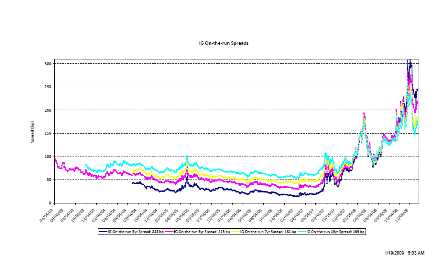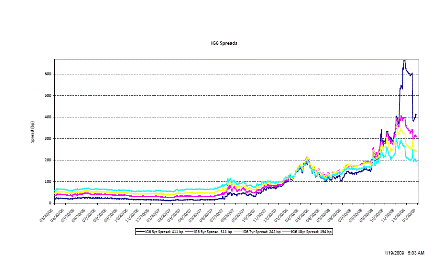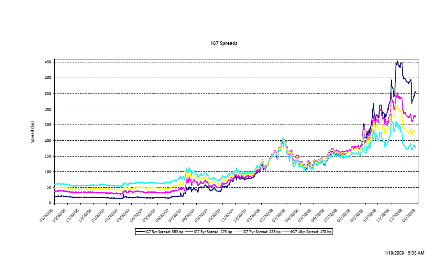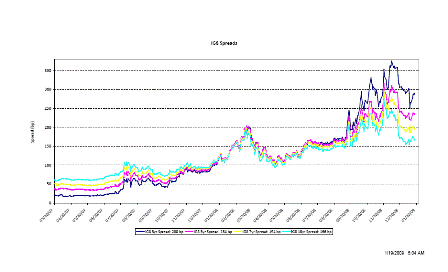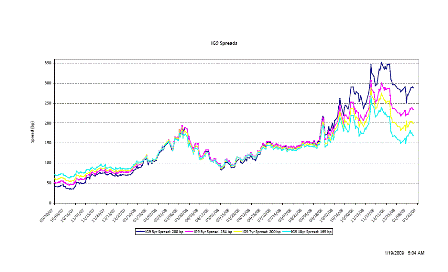[Skip to the end]
Seems government has it wrong again?
First, government has not acted to sustain aggregate demand- the primary economic responsibility of a taxing authority.
Yes, it’s sort of trying in bits and pieces, but has not taken immediate action to restore demand at levels at least 5% higher than where it is currently.
What banks need most is borrowers who have the income to afford their payments.
This is a simple matter of immediate tax cuts as well as sustaining funding for desired government services.
This requires nothing more than data entry on their sterling spread sheet.
Regarding current bank solvency issues:
If the UK government wants its banks to continue to function they can do that by simply providing unsecured loans from the BOE to fund bank operations, including lending.
No bank need ever shut down if government understands its role of not making the liability side of banking the place for market discipline.
Government can and does outlaw any banking activity if deems does not meet the test of public purpose.
Bank capital is the loss buffer between losses and government guaranteed deposits.
If bank capital is below required government standards (presumably determined for public purpose) all that means is any risk of loss for the bank is that much closer to being a loss for the government.
Adding government capital doesn’t change that, so it’s redundant in that sense.
If the government wants to sustain the operations of a private bank with deficient capital and there is no private risk capital available, it does so (for what they determine to be further public purpose) at risk of loss.
Any such loss to government is the ‘cost’ of the public purpose of sustaining those banking services, just like other public services have ‘costs’ such as the military, public roads, etc.
(At the macro level, the real costs are the real resources tied up in banking vs the real benefits of enhanced useful output.)
What to do with the UK banking system?
- Restore aggregate demand with an immediate fiscal package.
They have all kinds of VAT type taxes that can be adjusted to immediately restore spending power and enable borrowers to make their loan payments.
Waiting for current fiscal measures to do this will eventually work through the ‘automatic stabilizers’ but will take a lot longer with a much higher loss of real output.
- Continue to support the liability side of banking institutions, banking functions, and bank management and policies that are deemed to exist for desirable further public purpose.
- Sell the assets of insolvent institutions if it is deemed that action better suits further public purpose for particular institutions.
Some of this is happening, but it is not organized around an expressed agenda of ‘further public purpose’.
A clear vision statement regarding public purpose itself serves public purpose.
Unfortunately, the institutional structure in the eurozone does not allow for this type of government response.
They have to rewrite the treaty or wait through an ugly deflationary contraction for exports to recover, providing market participants continue to support them, which is doubtful at best.
(As always, feel free to distribute)
Jan 19 (Global Economic Analysis) — Equity prices in the three remaining Publicly Traded Irish Banks Collapse after Anglo Irish Bank was nationalized.
In afternoon trade, Allied Irish shares were down 62%, Bank of Ireland fell 49% and mortgage and insurance specialist Irish Life & Permanent dropped 41%.
Analysts said shares in Allied Irish and Bank of Ireland were being hit particularly hard because of growing investor fears that the banks’ existing shares will be heavily diluted when both banks formally accept billions in government investment this spring. Shares in the Dublin-based bank had fallen 98% over the past year on the back of bad debts and corporate scandal.
The government had previously proposed taking a 75% stake in Anglo Irish at a cost of 1.5bn euros (£1.36bn; $1.97bn). But it dramatically opted for a full takeover on Thursday, on the eve of an emergency shareholder meeting called to approve the earlier government investment.
Nationalization Concerns Sink RBS
Bloomberg is reporting RBS Plummets Amid Concern Bank May Be Nationalized.
Royal Bank of Scotland Group Plc slumped by the most in two decades in London trading on concern the government may have to take full control of the bank after forecasting the biggest loss ever reported by a U.K. company.
The stock dropped 67 percent, the most since September 1988, to 11.6 pence, paring the Edinburgh-based lender’s market value to 4.6 billion pounds ($6.7 billion).
[top]
